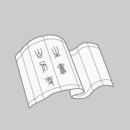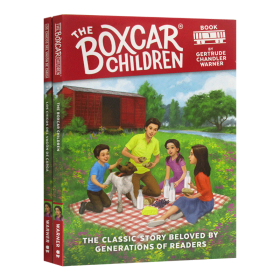
【预订】Burn Rate
书籍内容简介可联系客服查阅,查书找书开票同样可以联系客服
¥ 118 ¥ 118 九五品
库存2件
作者Andy Dunn
出版社Crown
ISBN9780593238288
出版时间2023-05
装帧平装
定价118元
货号YB-86001
上书时间2024-08-24
- 最新上架
商品详情
- 品相描述:九五品
- 商品描述
-
商品简介
NATIONAL BESTSELLER • In this “gripping” (TechCrunch), “eye-opening” (Gayle King, Oprah Daily) memoir of mental illness and entrepreneurship, the co-founder of the menswear startup Bonobos opens up about the struggle with bipolar disorder that nearly cost him everything.
“Arrestingly candid . . . the most powerful book I’ve read on manic depression since An Unquiet Mind.”—Adam Grant, #1 New York Times bestselling author of Think Again and host of WorkLife
At twenty-eight, fresh from Stanford’s MBA program and steeped in the move-fast-and-break-things ethos of Silicon Valley, Andy Dunn was on top of the world. He was building a new kind of startup—a digitally native, direct-to-consumer brand—out of his Manhattan apartment. Bonobos was a new-school approach to selling an old-school product: men’s pants. Against all odds, business was booming.
Hustling to scale the fledgling venture, Dunn raised tens of millions of dollars while boundaries between work and life evaporated. As he struggled to keep the startup afloat, Dunn was haunted by a ghost: a diagnosis of bipolar disorder he received after a frightening manic episode in college, one that had punctured the idyllic veneer of his midwestern upbringing. He had understood his diagnosis as an unspeakable shame that—according to the taciturn codes of his fraternity, the business world, and even his family—should be locked away.
As Dunn’s business began to take off, however, some of the very traits that powered his success as a founder—relentless drive, confidence bordering on hubris, and ambition verging on delusion—were now threatening to undo him. A collision course was set in motion, and it would culminate in a night of mayhem—one poised to unravel all that he had built.
Burn Rate is an unconventional entrepreneurial memoir, a parable for the twenty-first-century economy, and a revelatory look at the prevalence of mental illness in the startup community. With intimate prose, Andy Dunn fearlessly shines a light on the dark side of success and challenges us all to take part in the deepening conversation around creativity, performance, and disorder.
全国畅销书•在这个“扣人心弦”的地方(TechCrunch),“令人大开眼界” (盖尔·金,奥普拉日报)关于精神疾病和创业的回忆录,男装初创公司 Bonobos 的联合创始人讲述了与双相情感障碍的斗争,这几乎让他失去了一切。
“坦诚得令人震惊。 。 。这是自《不安的心灵》以来我读过的关于躁狂抑郁症的最有力的书。”—亚当·格兰特,《纽约时报》排名第一的畅销书《再思考一次》作者 和WorkLife 的主持人
28 岁,刚从斯坦福大学 MBA 课程毕业,热衷于“快速行动、打破常规”安迪·邓恩(Andy Dunn)在硅谷精神上处于世界之巅。他正在曼哈顿的公寓里打造一家新型初创企业——一个数字原生、直接面向消费者的品牌。 Bonobos 是一种销售老派产品(男裤)的新派方式。尽管困难重重,生意却蓬勃发展。
邓恩努力扩大这家刚刚起步的企业,筹集了数千万美元,同时工作和生活之间的界限也消失了。当邓恩努力维持初创公司的运转时,他被一个幽灵所困扰:他在大学经历了一次可怕的躁狂发作后被诊断出患有双相情感障碍,这刺破了他中西部田园诗般的成长环境。他明白自己的诊断是一种难以言喻的耻辱——根据他的兄弟会、商界、甚至他的家人的沉默准则——应该被锁起来。
随着邓恩的事业开始腾飞,然而,作为创始人,推动他取得成功的一些特质——不懈的努力、近乎狂妄的自信、近乎妄想的野心——现在正威胁着他的毁灭。一场冲突的进程开始了,它将在一个混乱的夜晚达到顶峰——一个准备解开他所建立的一切的人。
燃烧率是一本非传统的创业回忆录,一个二十一世纪经济的寓言,以及对创业社区中精神疾病流行情况的启示。安迪·邓恩以亲切的散文无畏地揭示了成功的阴暗面,并挑战我们所有人参与围绕创造力、表现和混乱的深入对话。
作者简介
Andy Dunn co-founded the ecommerce-driven menswear brand Bonobos in 2007 and served as CEO through its 2017 acquisition by Walmart. As an angel investor and through his venture capital firm, Red Swan, Dunn has backed more than eighty startups, including Warby Parker, Oscar, and Coinbase. Dunn serves on the boards of Monica + Andy, an organic baby-apparel company founded by his sister, and the tech nonprofit Raised By Us. Named to Fortune’s 40 Under 40 list in 2018, he is a graduate of Northwestern University and the Stanford Graduate School of Business. He lives in Chicago with his wife and their son.
精彩内容Chapter 1
Windu
In Hindi, there are at least ten words for “aunt” or “uncle.” Your mother’s sister, mother’s brother, father’s sister, father’s brother, mother’s sister-in-law, mother’s brother-in-law, and on and on: they all have different names. The most affectionate term of all is masi, reserved for your mother’s sister. For my sister and me, our mom’s family was the strongest force in our childhood. Our mom has four sisters, so I have four masis; it was a profoundly and proudly matriarchal upbringing. What I didn’t know at the time was that I would one day spend thirteen years building a company named for a species of matriarchal chimpanzee.
Mom’s parents, Prakash and Dhian, were born in Rawalpindi, a city in Punjab State. In 1947, the British split Punjab in two, creating a Pakistani side and an Indian side: Muslims over here, Hindus over there. My grandparents, a Hindu and a Sikh, had to leave in the middle of the night with their two daughters. The region was thrown into chaos, with an estimated fifteen million people displaced, and at least one million killed.
Usha Ahuja, my mother, was born in this context, in a refugee town called Kurukshetra, during her family’s multiyear journey from Rawalpindi to New Delhi, where they eventually settled. My mom’s mom, our Badi Mummy (Prakash), was a child bride, not educated beyond the sixth grade. She lost two children in infancy before she turned eighteen. Then she had seven kids: five girls and two boys.
My mom and her sisters adored their father, and they feared him, too. The level of his expectations for their success was daunting. He was an enterprising building contractor, a chain smoker, and an alcoholic. He instilled in his daughters a progressive message, ahead of its time in 1950s and ’60s India: “You don’t want to be dependent on a man like me.” His vision for his children was for them to get educated and make it to the United States. By the time he fell ill with emphysema, my mom had graduated college and been shipped first to Canada and then to the United States, to live with my Ashi Masi, by then an obstetrician-gynecologist. My aunt would go on to deliver both my sister and me.
My mom’s mandate was to get trained as an X-ray tech and send money home, living with her sister so that she could pass on 100 percent of her income. With her father ill, they desperately needed the money, and my mom—a most dutiful human—answered the call to the sublimation of her own possibilities. Any dreams she had of becoming a doctor, like two of her older sisters, were subsumed by that short-term need in the late 1960s. She never complained about it. She never complains. Money was so tight that when my grandfather died, in January 1969, my mom couldn’t afford to go home to New Delhi for his cremation. It haunts her still. She has never gotten closure.
Mom’s sisters built the clichéd Indian American immigrant family, filled with doctors and married to them, too. Ashi Masi’s husband is a radiation oncologist; Shano Masi, an internal medicine physician, married a surgeon; and Dolly Masi, my mom’s younger sister, is a physical therapist. My dad’s side of the family is smaller, but also filled with medical professionals.
As I was growing up, doctors were everywhere. My older sister, Monica, and I felt invincible—there was always medical help ready for any issue we faced.
Except, of course, for the one that came.
For Monica and me, Mom was a hands-on cultivator of empathy, a self-awareness developer, and, like her own father, a setter of high hopes and expectations. She was a rare mixture of caring—tough, compassionate, and candid. She was the same at work: in her twenty years of leading a team of a dozen women in a hospital ultrasound department, no one ever quit.
“You have to love the person behind the person that works for you,” she’d say.
In my childhood home we had paintings from Mackinac Island, in northern Michigan: gulls, pine trees, windy skies, rocks, and bluffs. There is a gray-blue hue where the horizon meets the lake. My dad’s eyes are that color. At six feet two inches, Charles Dunn, my father, seemed to me a gentle giant. “I love you” rolled off his tongue easily; unique, perhaps, for midwestern dads of his vintage. As a parent, he was a watchful protector, a role model for how to treat your wife, the answerer of all questions, and an ascetic who abstained from all forms of hedonistic consumption, save for ice cream. He was a walking encyclopedia. On a trip to Madrid, in 2003, I was three years out of college. Dad and I headed into the Museo Nacional del Prado. I asked if he wanted to get the tour-by-audio headset. “I’ll provide the audio,” he quipped. And then he did.
Dad’s family is multigenerational Irish, Danish, English, Norwegian, and Swedish American. One of three children, he was raised as an evangelical Christian, a Swedish Baptist. His father was adopted, so tracing the lineage becomes hazy: picture some Danish immigrants on a farm in Wisconsin, a Swedish bartender and his Irish bride, and you start to get the idea. His family moved nine times in twelve years before landing on Chicago’s West Side.
Before the mood swings and all the moving, my paternal grandmother, Alva Georgina North (Nana), was a World War II hero. Nana was born in Chicago. She was a surgical army trauma nurse who arrived on the beaches of Normandy on day ten, treating frontline soldiers’ wounds on the march to Berlin and Victory in Europe, or V-E Day. She was present for the liberation of the Buchenwald concentration camp. Back in the States, she had treated an airman named Charles Willard Dunn II, my grandfather (Dada), who would win the Distinguished Flying Cross as a pathfinding navi
相关推荐
-

【预订】Burn Rate
九五品济南
¥ 118.00
-

【预订】Burn Rate
九五品广州
¥ 118.00
-

【预订】Burn Rate
九五品广州
¥ 118.00
-

【预订】Burn Rate
九五品广州
¥ 118.00
-

BURN RATE
九品北京
¥ 100.00
-

BURN RATE
九品北京
¥ 90.00
-

Burn Rate : How I Survived the Gold Rush Years on the Internet
九品成都
¥ 80.00
-

Burn Rate: How I Survived the Gold Rush Years on the Internet (英语)
九品长沙
¥ 18.00
-

Burn Rate : How I Survived the Gold Rush Years on the Intern(精装)
九品北京
¥ 100.00
-

Burn Rate: How I Survived the Gold Rush Years on the Internet (英语)
七品金华
¥ 10.00
— 没有更多了 —












以下为对购买帮助不大的评价